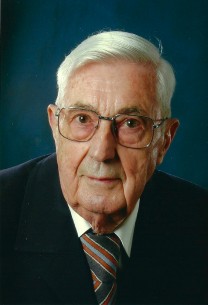Professor Dr. em. Erhard Schlesier was born in 1926 in Chemnitz, Germany. There he spent his childhood and youth.
Still underage, he was forced to join the German Army in the last period of World War II and eventually became a prisoner of war.
Disbanded in July 1945 he worked on a farm in Lower Saxony for a short time before finishing school in 1946. Erhard Schlesier applied for entrance at Göttingen University in order to become a sports teacher. But since in Post-War-Germany university places were rare, he had to wait for another year, taking up several jobs instead. He then successfully applied at the Theologisch-Evangelische Hochschule in Eichstätt, Bavaria, where he also first got into contact with anthropology through a book by Diedrich Westermann. With geography and history being his favorite subjects in school, Schlesier applied at the «Institut für Völkerkunde» (now: Institute for Ethnology) in Göttingen, where he started his studies in 1948. Völkerkunde was his main subject, his minor subjects were prehistoric and protohistoric archaeology as well as physical anthropology and German Volkskunde.
After graduating in 1951, Erhard Schlesier took up an assistant position at the institute in Göttingen where he eventually completed his habilitation thesis in 1956. In 1961/62 he did his first field research in the south of New Guinea. After his return he was appointed to a professorship at the Institute for Social and Cultural Anthropology in Hamburg while at the same time becoming the director of the ethnological museum in Hamburg.
From 1963 until the mid-eighties he also rendered expert opinion and issued reports for the German Research Foundation (Deutsche Forschungsgesellschaft, DFG). Prof. Schlesier returned to his former institute in Göttingen in 1967, where he worked and taught for the next decades until his retirement in 1991.
From 1967 onwards Schlesier was chairman of the German Association of Anthropologists (Deutsche Gesellschaft für Völkerkunde, DGV) for three years.





